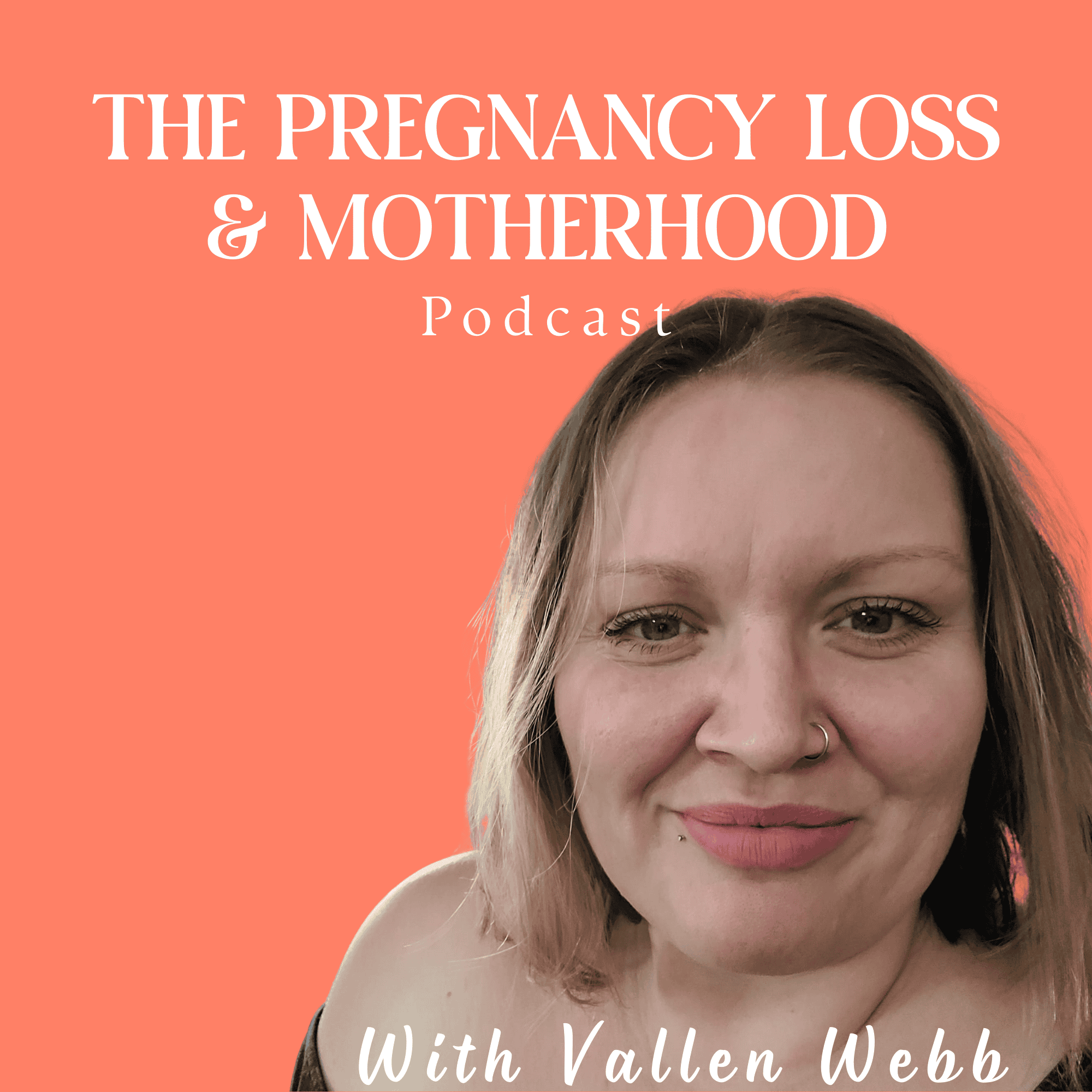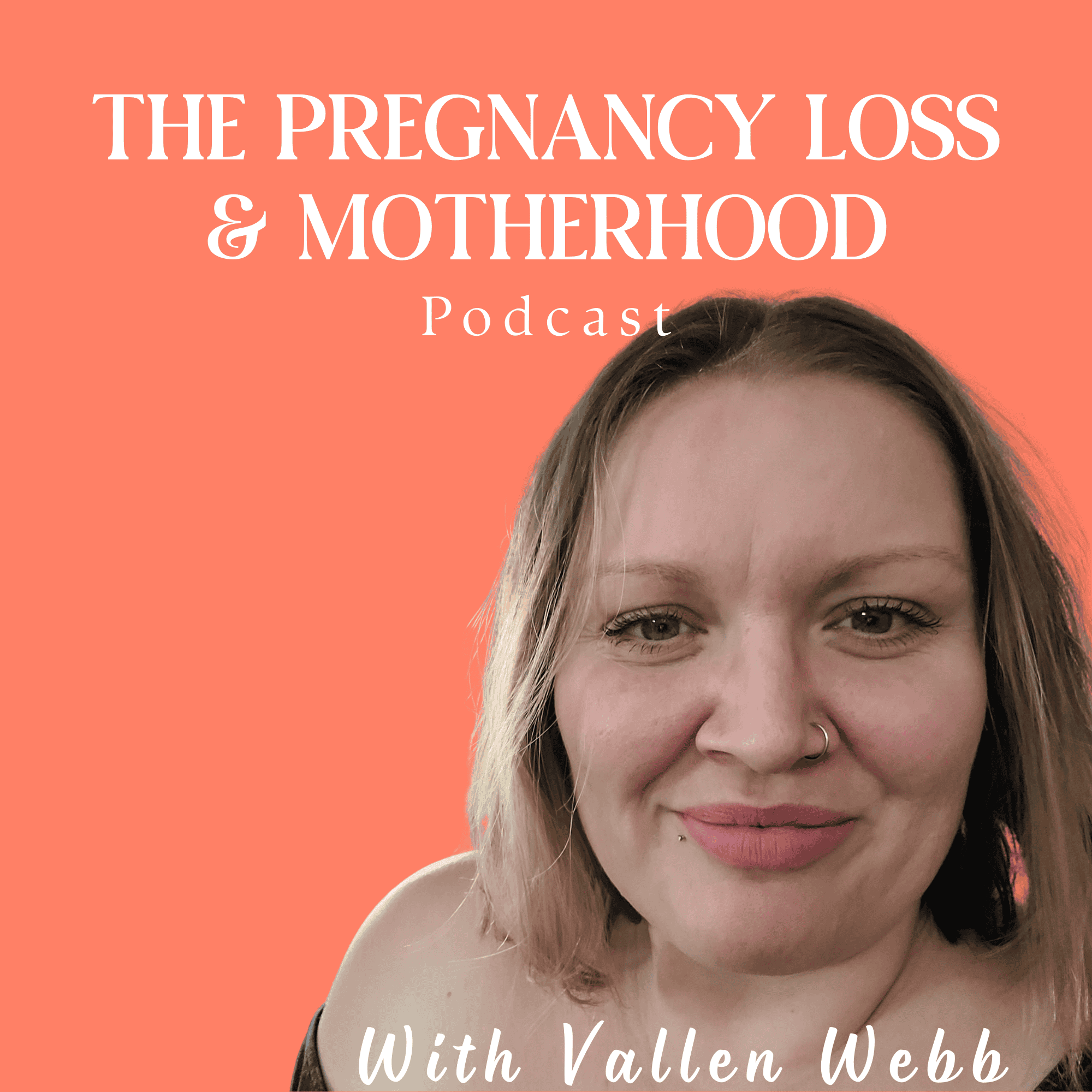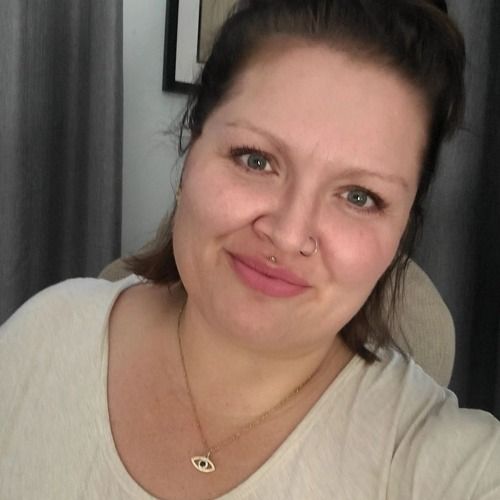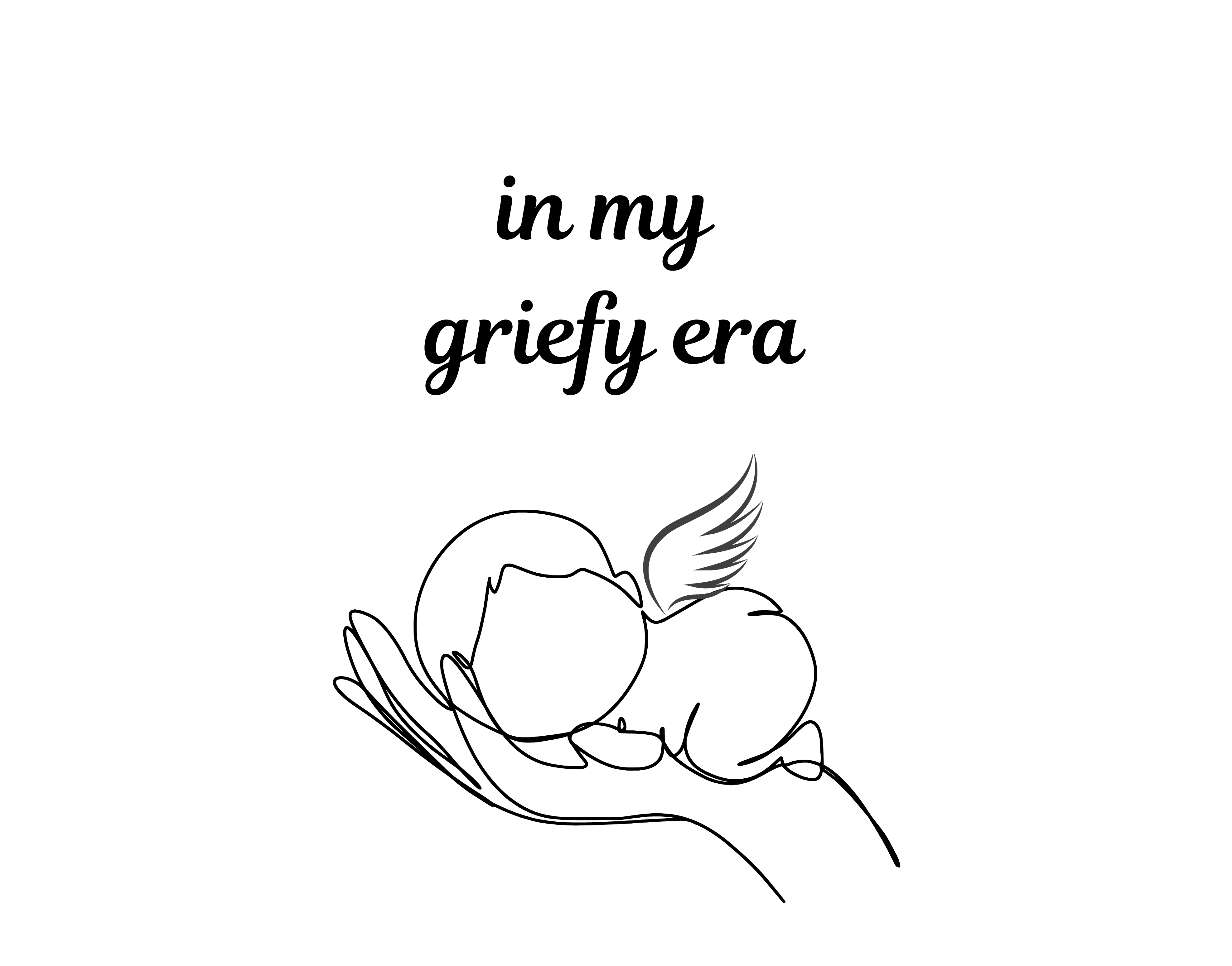Episode 90
Opening the Urn: Stillbirth, Cremation Ashes & the Grieving Brain
Episode Title: Opening the Urn: Stillbirth, Cremation Ashes & the Grieving Brain
Episode Summary:
In this episode of The Pregnancy Loss and Motherhood Podcast, Vallen Webb shares her personal journey through grief after the stillbirth of her daughter, Evelyn. She discusses the emotional experience of receiving her daughter's ashes, the challenges of navigating grief with her living children, and the importance of remembrance through art. Vallen also explores the science of grief, referencing the book 'The Grieving Brain' and how the brain processes loss. Throughout the conversation, she emphasizes the universal nature of grief and the need for community support.
What You’ll Hear:
- Grief is a deeply personal and universal experience.
- Receiving ashes can be a traumatic and emotional moment.
- It's important to include living children in the grieving process.
- Art can serve as a powerful tool for remembrance.
- Understanding the grieving brain can aid in coping with loss.
- Grieving is a learning process that takes time.
- Communicating with children about loss is crucial.
- The brain struggles to adapt to the absence of a loved one.
- Community support is vital during times of grief.
- Grief can manifest in various ways and is not linear.
Links + Resources:
- 🧡The Grieving Brain By Mary-Frances O'Connor, PhD
- 💌 Join our grief + growth newsletter: Here
- 🎙️ Listen to more episodes: On Spotify or other favorite podcast platform!
- 🧡 Visit the Evelyn James Shop: https://evelynjames.shop
Thanks to our partnership with IMBODHI, my Favorite Mom Outfit, Join the adult onesie club! I promise you won't go back! Imbodhi is the most amazing brand out there for unique, colorful, ethically sourced, and comfy materials. Get $15.00 off using my code! The mom outfit you don't want to miss out on! https://www.imbodhi.co/VALLEN31986
Connect with Me:
Instagram → @evelynjamesandco
Shop & Resource Hub → https://evelynjames.shop
Transcript
Hey love, welcome back to another episode of the Pregnancy Loss and Motherhood podcast. I'm so happy you're here. Today, we are going to discuss a few things. I don't know if you guys follow, depending on where you are in your grief, you may not want to, but Lauren the Mortician on Instagram, she's on Facebook too I think, but she's pretty incredible. She really breaks down, so she's a funeral director, it's like a whole family thing and...
Today she answered a question from a stillbirth mom about, you know, I probably should have just screen shot the post, but it says, any advice for mama who cremated her baby? I just got my son's ashes back today. He was stillborn two weeks ago. I wasn't prepared to see the ashes and I felt like I raised him. Lauren is so lovely and she like,
picked this out and decided to talk about it probably because of the month. But I wanted to kind of talk about this because I remember when we went to get Evelyn's ashes, I didn't know we were going to get Evelyn's ashes. There was a really terrible miscommunication and just, was awful. We were called
re, my stillbirth happened in:They led us into this room where they put urns and there's a few chairs for people to mourn and sit there and be with each other. We didn't know that this was supposed to happen and this is what we were coming into. I remember...
kind of, I feel like my body shaking a little bit, like going into that room and seeing the little urn, like I knew it was hers, but I was given no warning. So of course I'm crying and they're, they put her little urn in like a velvet bag and they hand it to me and they have a signed paper and I'm just distraught, not understanding what is,
going on necessarily and that it happened so quickly and it entangled with the feelings of feeling regret because I didn't ask the funeral home to like hold her body so that John could see her when he got home because I didn't know or even think to ask. Nobody told me that that could be an option. And so
We walked out of the funeral parlor doors, Schaefer and Shipman out of Marysville, Washington. I'll never forget. They were very lovely.
But I just remember sitting in the car. We were both kind of in disbelief and just like, what just happened? Like we didn't know. So it makes sense for a mom who just had a stillbirth to be like, I feel like I erased him.
We decided to cremate our baby's body because we were a military family at the time and we weren't staying in Washington forever and we didn't want to bury her somewhere where we wouldn't be. And we didn't really have anybody back home that we wanted her to be buried with. We wanted her with us. I wanted her with me because I had to make this choice. I of course, I talked to my husband about it, I believe.
I mean, I don't even remember that part, but.
You know, I was too scared that they would hurt her doing an autopsy, so I wouldn't let them do that. But then I had her cremated and, you know, it's her little body. You know, she went back to the earth. And I still have her ashes. And actually, I do cremation jewelry, so I make a bunch of fun pieces for myself while I'm like trying out new things for other people, you know, to get the process right. But it's...
It's cathartic for me and it helps me.
Opening up the bag, so the little urn has, know, for us it was like this plastic bag that was tied with a zip, a twisty tie, you know, you would get at the grocery store for your fruit. And just untwisting it and opening it, like, I didn't know that there would be bone shards in there.
And you guys, if this is too much, it's okay to let this episode go and choose another one. But I've never talked about this before, so I thought it was a bit important. it's so scary. Opening up that urn for the first time was very scary. And that first time that I actually opened it was with my daughters. Because they were so curious. Like, how'd they fit her body in there, Mom? How is she in there?
Is she gonna come out? And then kind of discussing cremation and how it turns our body into ash. It was actually a a very good conversation. mean, Callie was the only one who really kind of understood. I mean, she still didn't understand that she wasn't coming back. So they were still like, when do we get to go see her? And things like that. But,
She under, like when I was able to show them the ash inside the thing, they stopped like worrying it was something scary or gory, which is kind of what they thought, like Callie thought it would be gross is the word she used. So.
I think it can be very helpful for children to see that, like it's not scary. It's just powder, it's ash, you know? And for some of us, that's just too much. Some of us are just like, God, I can't do that. That's like my baby's body and that's okay. I just wanted, I was so happy that Lauren highlighted this.
because it's an important conversation.
I mean, I'm missing my girl a lot.
On another note, so another thing that I was thinking about the other day. So we do a lot of artwork in our house. My two year old likes to draw on every single wall and door and panel that we have in the house. Like anything, anything is his canvas. He does not care. So I started taking to the table, like making him sit down and learning like this is where we do this.
He has three other siblings that happen to leave writing utensils everywhere. So it's kind of hard for us to navigate. But I got out some pastels and I was like, okay, let's just, let's play around. And I knew like immediately I go to like writing Evelyn's name and you know, making rainbows and watermelons and all the things that remind me of her, right? And it got to me thinking like, I do this a lot.
And I always, always doing Evelyn stuff. Like, for Evelyn, for Evelyn, for Evelyn. And I was like, I wonder if the girls feel any way about that. I wonder if they feel left out or I don't think about them as often or I don't create things for them as often. So was like, you what, I'm gonna do one for Cal and Violet's room. So I did.
And of course, Callie takes it and she pins it to the wall. Because it does matter. So maybe this is just like an invitation to check in and make sure you're like including your kiddos with your angel baby. Because I didn't realize what I was doing until yesterday. And I just, I don't want them feeling resentment towards their sister or like feeling as if they're not as important because you all the work I do is surrounding.
her and her legacy. What they don't see is that it's also for them. They don't see that yet.
But it's important to voice it and let them know like this, I made this for you or I make necklaces. So I'm like, I made this for you. Things that are not about Evelyn. And in the beginning, this would have held a lot of guilt for me. My kids are here. I spend time with them. I don't get to spend time with Evelyn. So I do these things for her. But also my children are here.
and I want to be present and do things for and with them too. So it was just like a moment of clarity.
a moment of clarity, was like, wow, okay, let's do this differently. Let's include and, and, you know, make a, make a little picture for the girls. So that's just something else I was thinking about. And then the other thing I really wanted to talk about today was a book. So this book, I've read a little bit of it before.
a few years ago, I kind of let it go because it was heavy. But now that I'm in graduate school and I'm working towards being a mental health counselor.
I'm finding it even more important to learn everything I can about the grieving brain because it's very different from our everyday life brain. So this book is called The Grieving Brain, The Surprising Science of How We Learn from Love and Loss, and it's by Mary Frances O'Connor, PhD. And in what I've read, I highlighted some stuff to talk about because...
Sometimes I feel like...
I don't know, my brain can go back to that grief brain. Does that make sense? Does that happen to you? Like you have days or weeks or sometimes months even, mine mostly of course during July during her birth month.
but it feels like I'm so foggy, I'm so unclear, I can't focus, I can't make decisions, I can't think straight. And it feels like I was laying in that hospital bed again, just kind of in disbelief, in shock, in denial, you know, and.
I find it very wild, but at the same time, I know how miraculous our brains are in connecting things and when we're feeling a certain way, it goes back to when we felt a certain way and if that makes sense.
one of the things that I underlined.
the something she realized in her studies and her research with neuroscience is that the brain has a problem to solve when a loved one has died. This is not a trivial problem. Losing our one and only overwhelms us because we need our loved ones as much as we need food and water. Now, in pertaining to a baby that we maybe have not ever met or met briefly,
This is the same thing. This was our child.
And so she talks a lot about how the brain is great at problem solving, which it is. That's what it does. It creates patterns, awareness. And she talks about the fact that our brain devotes a lot of effort to mapping where our loved ones are while they are alive so that we can find them when we need them.
So this is like a subconscious thing that we do. And imagine, of course I look through the lens of baby loss, pregnancy, infant loss, because that's my experience. So for nine, almost 10 months, our baby was inside our belly, relatively safe. We knew no different. We've never, some of us had never experienced a loss or even really realized that
we could be that one. I think I felt that way because I had two living children. And I kind of had this naive thought, like, because I have living children, nothing will ever happen to my kids, like, in my womb, like, because I didn't experience it yet. And so our brain map of our baby was our belly, knowing that they were safe, thinking that they were safe.
but then the brain also struggles to learn new information that cannot be ignored, like the absence of our baby.
So grieving, this whole process of grieving our child, our baby, requires the really difficult task of throwing out the map that we had created that helped us navigate the life while they were inside of us in that prenatal period.
And she goes on to say, grieving or learning to live a meaningful life without our loved one is ultimately a type of learning. Because learning is something we do our whole lives. Seeing grieving as a type of learning may make it feel more familiar and understandable and give us the patience to allow this remarkable process to unfold.
I know in the beginning if somebody would have told me that like this is a learning process, you're going to have to learn to live without that child that you have created a future with in your brain and your brain doesn't know the difference between something that is imagined or something that is real. And that is a scientific fact. Our brain believes what we give it and we've been daydreaming and building these lives of our beautiful babies once they come and
Now I have to learn, like if this is my new learning process, a new skill I have to learn, is to be without them, to learn how to live without them and not know where they are.
It's so strange, isn't it? One minute they're with us, we know where they are, their heart is beating, they're moving, and the next minute, like for me, like her soul was gone, and it was just her lifeless body.
and it still moved, right? Not kicking and things like that, but her body shifted, which was a very subtle difference and I didn't notice. So.
She goes on, and I think too, as I'm reading this, I'll circle some insights and I'll just kind of share a few things.
And you can let me know in the comments what you think about it. And also, I'll link the book in the show notes. So if you want something interesting to read about grief, you can get it.
So she says too, so this is the last part that I'll talk about the book and we'll just go on a little bit more conversation, but she says that her contribution as a scientist has been to study grief from the brain's perspective. From the perspective that the brain is trying to solve a problem when faced with the absence of the most important person in our life, grief is a heart wrenchingly painful problem for the brain to solve.
and grieving necessitates learning to live in a world with the absence of someone you love deeply who is ingrained in your understanding of the world. This means that for the brain, your loved one is simultaneously gone and also everlasting, and you are walking through two worlds at the same time. You are navigating your life despite the fact that they have been stolen from you, a premise that makes no sense and that is both confusing and upsetting.
So just imagine, you know, we're pregnant, we learn about the world in terms of our baby being there and how we live life day to day being pregnant, maybe with our other children, and then all of a sudden it's gone. And we have to navigate something that doesn't make sense. I remember a time when I was just so confused about everything. I'm like, how? How did this happen? Why did this happen?
How am I supposed to even tell my other children? How am I supposed to live without her? How am I supposed to live in a world without one of my children? And that is still a question that I grapple with because it still seems so fucking impossible.
If you would have told me that I would be a mother, but one my children would not ever be on this earthly planet without me, I don't know what I would have thought.
I would have struggled with how. What do mean? They're gonna die babies, children don't die. In my world, they didn't die before Evelyn. I saw and I knew of other people who had stillbirths and miscarriages. But there's something about it happening to you, of course, that makes your whole world change. And I often get sad about the people who...
shared their story with me, you when I was a young adult and it just was like, I'm so sorry. And then just stayed away from it because that was like a really uncomfortable subject. And I didn't know how to process that. I didn't even know how to think about that. wasn't a mother yet and it didn't matter to me because I wasn't a mother yet.
And we're human, we're not going to be perfect. I, of course, forgive myself for that. But how are you guys doing this month? How has your October been? I know that a lot of you are celebrating death and birth months if you do celebrate.
I've seen a lot of beautiful memorials and nonprofits doing their things. my God, and we missed our walk this weekend. Like I signed up for it, t-shirts, like everything, and it slipped my mind. I don't know how I did that.
Did you guys attend something yet this month in honor of your baby? I'd love to know. I'd love to know what you attended and how it was. Remember, you can always email me at Valen, or not at Valen, valen at EvelynJamesandCo.com, or you can leave a comment on whatever episode you're listening on, whatever platform. I am the one who does the podcast. I edit, I do show notes, I answer emails, I answer comments.
all of it. So yeah, that has what has been on my mind lately is
grief in general and just how much of a human experience it is. Like one of the most universal experiences besides birth, joy, know, anger, all these seemingly connected experiences that we have across the board. Grief, birth and death are separated by a thin veil. And then we have grief, which we live the rest of our lives going through.
And in the book too, I didn't get that far, but won't get that far. And as in reading more to you guys, I don't want you getting bored, but there's a difference between grief and grieving. So we'll talk about that next week too. What else? Make sure to head to our website. We have a bunch of free PDFs on there for different circumstances, for different people, for different things if you need it. EvelynJamesandCo.com slash
slash find support. And then also our shop, EvelynJames.shop. It is still newer. We are still looking for vendors. So if you create something for lost families and would like to be a vendor, the first year is totally free. We're just trying to get it up and going. So we're very excited about that. Send me an email if that's something that interests you. But yes, I hope you have.
as good of a week as you possibly can. I am here for you, I'm thinking of you, I'm holding your babies with Evelyn. I just envision them all together in the most beautiful place, wherever that is, with all of our loved ones. Not the people we don't like, but the ones we really, really love and imagine them being with our children. But.
Sending all the love to you this week and I'll see you next week on another episode of the Pregnancy Laws Motherhood Podcast.



